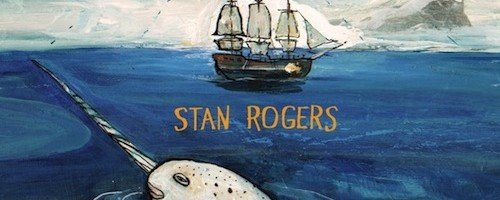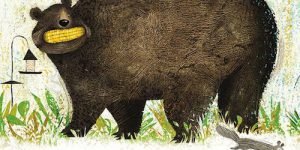The most rewarding, and the most difficult journey in life is to become who we are. For a lucky few, it’s no journey at all, for others, it takes years if not decades to shed the layers that mask our true selves. There are many pressures to conform, to fit in, and we adapt our personalities in ways which can often feel fraudulent. In Mr. Tiger Goes Wild, Peter Brown masks his protagonist in a waistcoat and top hat. He also makes him a tiger; a very proper, and very bored tiger.

A Land So Wide and Savage
On a hill more than thirty years ago, I first heard the unmistakeable voice of Stan Rogers. It was the Edmonton Folk Music Festival in 1982. As the hot August sun beat down my haltered back, the bearded balladeer’s muscular baritone percussed through the grounds like a drumbeat, tossing flimsy-voiced folksingers in its wake, demanding that we pay attention to the stories of our country, that we be upstanding for the narrative of Canada. And so I stood.
 Canadians love to talk about what it means to be Canadian. That we have yet to reach a consensus is proof that we are a diverse people. Diverse, and indecisive. Still, there is common ground: a national predilection for caffeinated beverages in the name of a deceased hockey player, doughnuts from said deceased hockey player, hockey, snow, and, for a lot of us, the music of Stan Rogers.
Canadians love to talk about what it means to be Canadian. That we have yet to reach a consensus is proof that we are a diverse people. Diverse, and indecisive. Still, there is common ground: a national predilection for caffeinated beverages in the name of a deceased hockey player, doughnuts from said deceased hockey player, hockey, snow, and, for a lot of us, the music of Stan Rogers.
I knew him through my music-loving sister, who wept the day he died in 1983 at the age of 33. “Who will sing about us?”, she said. Indeed. Folksingers abound, but few tell stories that enrich a nation’s perception of itself, and even fewer take on the lead-lined pages of a failed northern expedition and turn it into a song that endures. Northwest Passage by Governor General award nominee Matt James is not only a celebration of the Stan Roger’s most famous song, it is also a glimpse into an historical event that still resonates into the 21st century.








